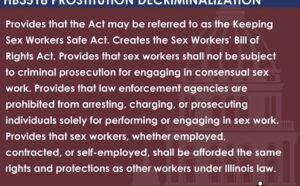In the wake of Tuesday’s federal raid on male-escort advertising site Rentboy.com, many on social media have suggested anti-gay motivations, “a throwback to when the police raided gay bars in the 50s and 60s.” While I’m glad if this framing gets more gay-rights groups to take up sex-work advocacy, the government’s interest in stopping commercial gay sex is surely more motivated by the commercial aspect here than the man-on-man component. We’re riding high on a wave of state successes in shutting down prostitution-related businesses—from MyRedbook.com to escort services like Sensual Alaska—and cracking down on commercial sexual activity, be it street-based prostitution or erotic massage parlors.
This is all bolstered by the guise of stopping “human trafficking,” and aided by massive amounts of federal funding plus newly granted wiretapping, asset forfeiture, and other law enforcement powers. As Scott Shackford pointed out, the Department of Homeland Security (DHS) and the New York City Police Department (NYPD) didn’t go after Rentboy.com out of a conviction that gay sex workers pose a threat to national safety but because they could seize $1.4 million from employee bank accounts, along with their homes and other assets. This is not so much a moral crusade—not for police, prosecutors, or federal agencies anyway—as a money-grubbing one.
Under a variety of statutes, from the Travel Act (which is what Rentboy.com employees were charged with violating) to the recently passed Justice for Victims of Trafficking Act (JVTA), the federal government can gain permission to seize assets from any number of people connected to any kind of prostitution business. And among many prostitution-related laws passed in the states over the past decade, adding asset forfeiture possibilities has been quite a popular move. At least 41 states* and the District of Columbia now allow some form asset forfeiture for commercial-sex offenses, up from 32 in 2012.






